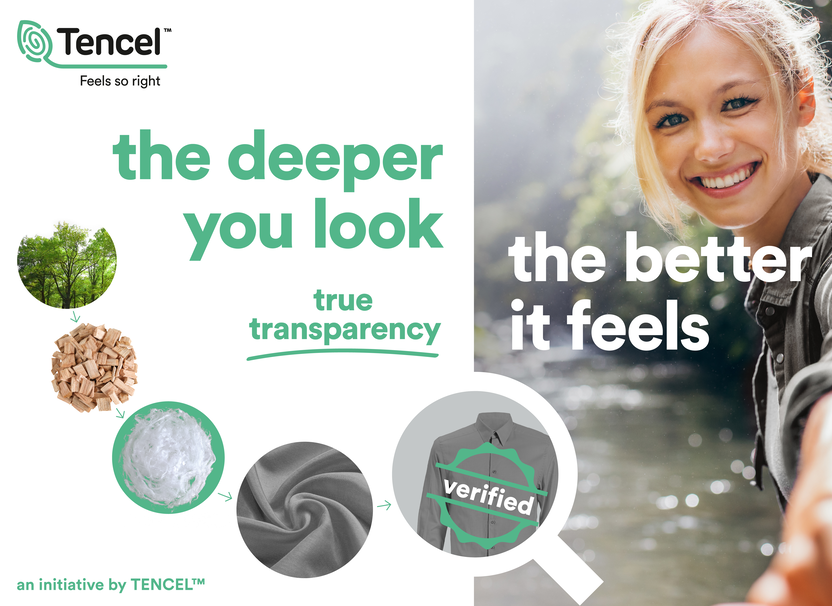
The move has been made to solidify Lenzing’s commitment to providing supply chain transparency along the entire textile production process. The launch and feedback from the industry on the system used for Lenzing Ecovero branded fibres, as well as the growing number of wood-based cellulosic manufacturers, encouraged Lenzing to further expand the technology for the Tencel brand to ensure traceability of its products.
Lenzing’s fibre identification technology provides physical identification of fibre origin at different stages of textile products such as the fabric and garment level. This enables full traceability of the fibre, protects from counterfeiting and provides assurance to brands and retailers that their products are made from Tencel branded lyocell and modal fibres. It also guarantees that the fibres are produced in production facilities that meet high standards for resource efficiency and environmental and social responsibility. This allows brands and consumers to have full visibility of how and where their products have been made.
Fibre identification will be a vital part of the fabric certification process within Lenzing E-Branding Service. As of November 2021, all fabrics will be tested for fibre identification, enhancing the security of Lenzing’s online services and testing facilities and increasing transparency and security between value chain partners. By the first half of 2022, additional services for brands and retailers will be integrated onto Lenzing e-branding Service.
“As the awareness of sustainability grows, we see the need to continuously improve transparency and traceability of our products, so as to make sure our brand credentials are well protected and trusted by industry stakeholders and consumers,” says Florian Heubrandner, vice president global textiles business at Lenzing AG. “By extending the Tencel brand’s effort on supply chain transparency with our fibre identification technology, we hope to enable the textile industry to become more sustainable, as well as ensure our brand partners have the credibility to communicate their sustainability efforts and combat greenwashing.”
As brands and consumers become more aware of the importance of informed purchase decisions, it is becoming more imperative to offer proofs around the production process. The combination of both physical and digital traceability allows brands to easily verify the materials used in their products – this will become a key driver in the textile and fashion industry, says Lenzing.
As such, the company is currently partnering with TextileGenesis to launch a blockchain-enabled supply chain traceability platform, and in addition to its innovative E-branding Service, is working to improve digital traceability and create an unprecedented level of traceability.
How well do you really know your competitors?
Access the most comprehensive Company Profiles on the market, powered by GlobalData. Save hours of research. Gain competitive edge.

Thank you!
Your download email will arrive shortly
Not ready to buy yet? Download a free sample
We are confident about the unique quality of our Company Profiles. However, we want you to make the most beneficial decision for your business, so we offer a free sample that you can download by submitting the below form
By GlobalData“Over the next few years, branded fibre products will employ fibre identification technology on a broader level, and, in time, it will be possible to real time track and trace materials through the supply chains. We hope that our success can provide the industry with an example of how innovation empowers sustainability and help to shift perception towards proven sustainable solutions,” adds Heubrandner.



